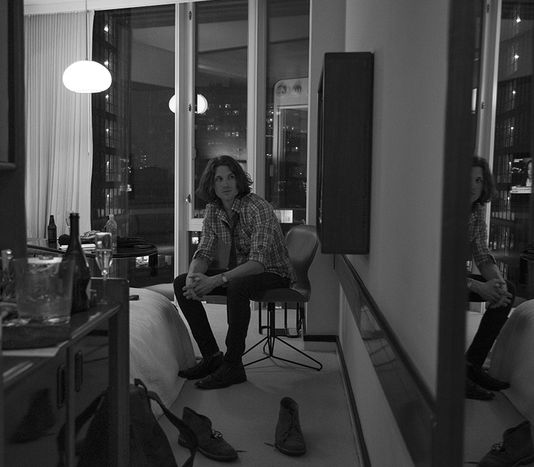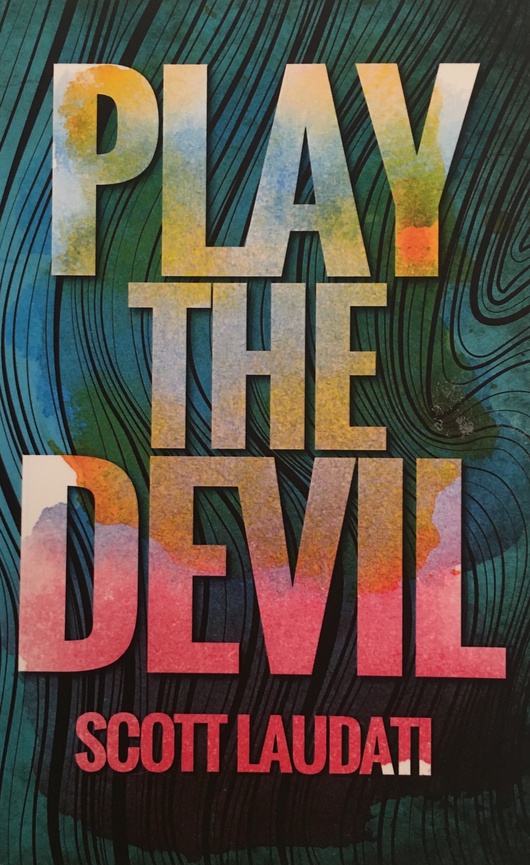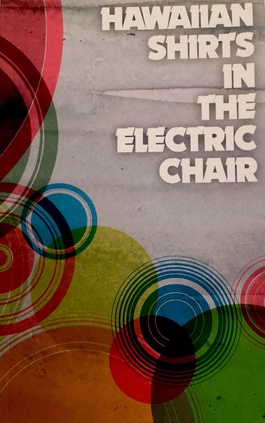
An interview with underground writer Scott Laudati
Published on
Scott Laudati is a young American writer, riding the waves of the country's Beatnik generation. His collection of poems Hawaiian Shirts in the Electric Chair and debut novel Play the Devil give a voice to millennials facing an uncertain future. So what's the twist? He's got a lot to say about Europe.
Born in New Jersey thirty years ago, Laudati gives voice to millennials: a generation facing unemployment and uncertain futures in spite of its high education. In this interview Laudati explains his position on the issues of the Generation Y at the time of Great Recession and terrorism in both Europe and the U.S. He also tells Café Babel about his work and influences, as well as his own perception of european values and culture.
Cafébabel: How did you become a writer?
Scott Laudati: It was actually the sister of Jack Antonoff [NB. American singer from band Bleachers] that made me start writing. I used to work for a record label he was on. We’d all go out to eat and his sister Rachel and I would be at the end of the table so the label could discuss business. She was older and I immediately had a crush on her. She told me once she wanted to be a writer. I was 15 I think, and right there I just said to myself “you have to be a writer”. I never saw her again after that but she changed the course of my life.
Cafébabel: You’ve referred to yourself in the past as a “Jim Carroll kind of guy”. Can you tell us more about yourself, and which writers have influenced your work?
Scott Laudati: Jim Carroll [NB. American author] took what the beatniks were doing a little further. He simplified their poetry; brought it away from Whitman and jazz, and did the whole punk rock thing. It was easy to read, but still decorated. I feel like there’s something lacking in the poets that came after Carroll. They’ve figured out how to simplify, but in doing so they lose all the substance.
My biggest influence is probably Conor Oberst and his lyrics. Anytime I think I’ve written something perfectly, I listen to one of his songs and I realise he’s already said it better – and usually with a lot less words.
Cafébabel: Your novel Play the Devil is set right after the Great Recession, in which the protagonist moves back home after graduating from college – in debt and unemployed. Is this a reflection of a greater reality in Europe and the U.S. for millennials?
Scott Laudati: I was just writing about life as it was happening, and the whole world happened to go insane. Overnight, my government sucked two trillion out of the economy and handed it to the banks. Greece fell apart. Russell Brand was marching through the streets of London. No one really seemed to care that their children’s futures just disappeared. They didn’t get angry at the banks, they got mad at their kids for having to move home after college.
 I don’t know what these parents and teachers are thinking when they make all the kids go to college. The world needs plumbers and electricians. These are great jobs, and [as it stands] no one knows how to do anything… Parents don’t seem to have any problem voluntarily turning their kids into debt machines. The only people I know making any money are the ones who skipped college, went to a trade school, and immediately joined the workforce with no debt. I try to make my anger at the older generation apparent in Play the Devil, for scamming all of us millennials.
I don’t know what these parents and teachers are thinking when they make all the kids go to college. The world needs plumbers and electricians. These are great jobs, and [as it stands] no one knows how to do anything… Parents don’t seem to have any problem voluntarily turning their kids into debt machines. The only people I know making any money are the ones who skipped college, went to a trade school, and immediately joined the workforce with no debt. I try to make my anger at the older generation apparent in Play the Devil, for scamming all of us millennials.
Cafébabel: Are unqualified jobs and manual labour very common amongst American youth? What are the differences you see with regards to Europe?
Scott Laudati: They are very common now in America. I think the difference between the generations is that now it’s young people with college degrees who are roofing your houses, or, in the case of Play The Devil, cleaning your pools. We leave college and take these manual jobs until we can find something closer to our “career paths”. However, you need to start immediately paying off a massive loan, so people get trapped in these cycles of continuous paycheck to paycheck living. And the debts are so large you’re only ever paying off the growing interest.
While college is much more affordable in Europe the price tag is always getting higher. University is big business, and a few election cycles of Conservative wins will drastically change the system. But without a looming debt-sentence, European youth can experiment more, and hopefully not get locked into a career they’ve taken only out of necessity.
 Cafébabel: You mentioned the recent terrorist attacks in the UK and France. How has the perception of Europe in the US changed since then?
Cafébabel: You mentioned the recent terrorist attacks in the UK and France. How has the perception of Europe in the US changed since then?
Scott Laudati: I went to Western Europe in 2003 and again in 2007. What I saw was country after country, so rich and alive with culture and art I couldn’t believe there had ever been a time when an ancestor of mine thought there could be something better on the other side of the ocean. There was a sense of freedom in Europe I’d never felt in the US. I say all of this because the perception in America is Europe has completely been taken over by Islamic terrorists. Americans think Europe isn’t free anymore, that everyone lives in a perpetual state of fear, and so, the terrorists have won. I don’t think there’s anyway Europe could ever “lose its identity”, with a culture and history that runs so deep. But terrorist attacks in Europe were part of what got Donald Trump elected. Trump promised to ban Muslims to keep America safe, and continually used the phrase “look what’s happening in Europe” to push this new agenda of racism.
Cafébabel: What about your personal perception of Europe?
I went to western Europe once on a tour with bands and I backpacked a few years later. I love Europe. I’d move over tomorrow if I could find a job there. The first time I went I was amazed at how much I had been lied to. I’d always been told America was the greatest and we were better at everything. In Europe, the social services like subways, trains, etc. were so efficient. In America nothing works and our infrastructure is totally crumbling. Most of our cities were built after the automobile so there is basically no public transportation.
 I saw my first ever protest in England. They had just raised tuition and there were hundreds of students in the streets. I didn’t even know protests for policy existed before that. In a hostel in Austria a Swiss economics instructor explained to me that patriotism should mean helping your poorest citizens, not just rallying around the flag at a football game.
I saw my first ever protest in England. They had just raised tuition and there were hundreds of students in the streets. I didn’t even know protests for policy existed before that. In a hostel in Austria a Swiss economics instructor explained to me that patriotism should mean helping your poorest citizens, not just rallying around the flag at a football game.
When I hear things like the new French president encouraging scientists, or Sweden’s efficiency of taking care of garbage, it makes me very jealous. I’d like to live in country that didn’t only excel at war. When Geert Widers and Le Pen both lost I was very relieved. I hope Europe continues to use America’s spiral towards intolerance and fascism as an example of what happens when you vote for hate and fear. There are a lot of American’s who feel like me about Europe, just not nearly enough.



